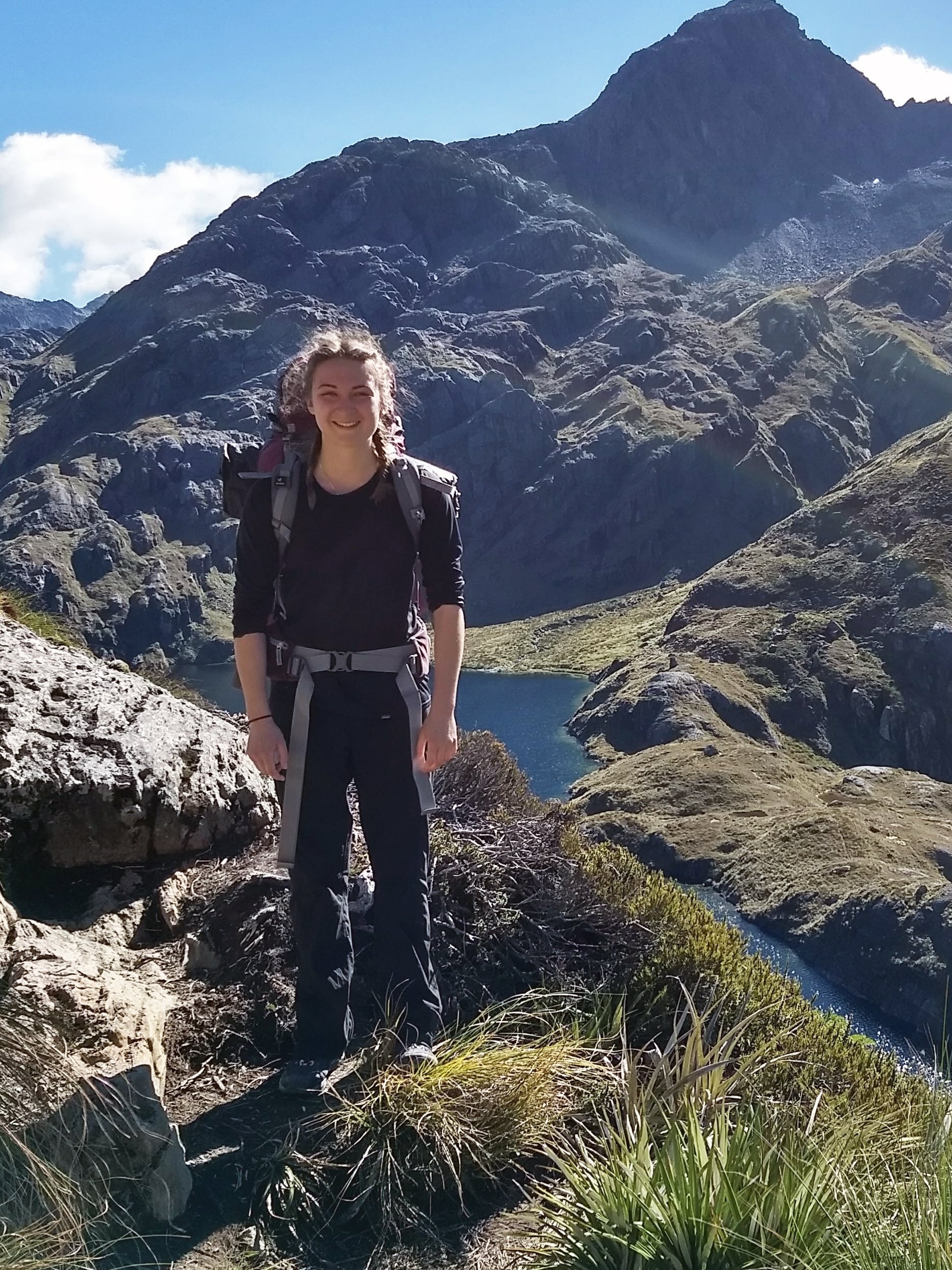KINGSTON, R.I. – April 30, 2020 – Despite having to complete the final weeks of her senior year of college from afar due to the coronavirus pandemic, University of Rhode Island senior Jessica Burr has an excellent attitude about the situation.
“I was pretty bummed to know that the last part of my senior year was gone, especially graduation, but I’m still thankful,” said Burr, a native of Hebron, Connecticut. “If that’s the worst thing taken from me, and if I have to stay in my house for a while, I’ll be incredibly fortunate.”
As she looks ahead to the completion of her bachelor’s degree in wildlife and conservation biology, Burr is also looking back at a college experience filled with international travel, wildlife research, and plenty of time spent rock climbing and hiking. When she completes her studies, she will also be the recipient of the URI President’s Student Excellence Award as the top student in her department.
But it is her travels abroad that she looks back on most fondly.
“I always knew that I wanted to break up my college experience with international travel, so I studied in New Zealand for a semester,” she said. “It’s a place I always wanted to go, and it was an amazing place. Every weekend a group of us explored the country. We went backpacking, hiking, skydiving and paragliding.”
On her way home from New Zealand, she stopped in Hawaii to work on a farm for the summer. And then she began seeking wildlife research opportunities that would lead to additional travel opportunities.
She started working with Assistant Professor Brian Gerber on a project using trail cameras to determine how mammals use rock walls in the forest to the north of the URI campus.
“We found that different animals use the walls in different ways,” Burr said. “Bigger animals like deer and coyotes were funneled through gaps in the walls, which we inferred to mean that the animals’ movements were being affected by the walls in some way. Smaller animals like chipmunks were jumping around on the walls, though we don’t know whether it was for food caching or nesting or what. They also might be using the walls for ease of passage or to get a better vantage point.”
That led to her serving as a field technician working with Gerber’s graduate student, Juliana Masseloux, in Cat Tien National Park in Vietnam, where she spent two-and-a-half months last summer.
“We were looking at how human disturbance causes the mammals in the park to change their behavior and change where they travel,” she said. “So we hiked through the jungle to set out 95 trail cameras throughout the park.”
Because some of the animals live high in the trees, Burr was trained as a tree climber to set up cameras as high as 70 feet up in the forest canopy.
“Everything was cool to me because I had never been to Southeast Asia before,” she said. “We saw lots of langurs and other monkeys. My favorite moment was climbing high in a tree and having a monkey swing by me in the canopy.”
The experience taught her a great deal about field research and intercultural communication and primed her for future wildlife travels. It also led to a job as Gerber’s lab manager.
“I can’t undersell what working with Brian Gerber has meant to me. My college career has been filled with amazing opportunities and experiences, and a good portion of them stem from Brian and his grad students taking me under their wings,” said Burr, who also acknowledged the support from her family and friends in her success.
As she looks to the future, she has only one thing on her mind – traveling across the country in a converted van to see what opportunities arise.
“I want to experience life without school, which is something I haven’t done much of yet, and I’ll see what I’m drawn to from there,” Burr concluded. “I’m thinking about doing conservation projects around the country for a while. But mostly, I’m just excited to explore and see what and where I’m called.”

